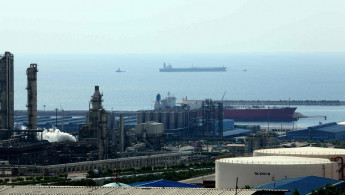Total close to lucrative flagship gas deal with Iran
Iran is confident that it is close to signing a flagship contract with French energy giant Total to exploit natural gas reserves in the country.
In a statement published by Iran's ISNA News Agency on Wednesday the country's Deputy Oil Minister Amir Hossein Zamaninia said that "developments are taking place" towards "a final agreement of the project".
In November Total signed a preliminary agreement to develop gas infrastructures in the South Pars gas fields, in a deal also involving China's CNPC and Iran’s Petropars invest a total of $4.8 billion.
In particular the deal is centred on the development of Phase 11 - one of 24 divisions on the offshore field between Iran and Qatar.
It alone is estimated to contain 21 trillion cubic feet of gas and could have a production capacity of 1.8 billion cubic feet per day or 370,000 barrels of oil equivalent per day.
Major western oil and gas companies have been eyeing the Iranian market since international sanctions targeting Tehran's nuclear programme were dropped following a US-lead deal at the start of 2016.
However, Total has been waiting for an extension to the US sanctions waiver before finalising a deal, according to reports.
Last week, officials in Washington said last week that Iran had to date complied with the nuclear deal, in a move that could pave the way for Total.
The Trump administration has also called for a full review of the 2015 deal signed between the US and Iran, in addition to five other states with the Trump administration remaining suspicious of the agreement.
Since decades-long sanctions were lifted against Iran in 2016 Tehran has sought to ramp up crude production to reduce its market deficit.
Yet, the country's oil and gas infrastructure has become outdated and is in need of rehabilitation and development, with international investors seen as crucial by authorities to such an endeavour.
Iran's energy ministry says the country requires $200 billion in foreign investment to develop its oil ministry.





 Follow the Middle East's top stories in English at The New Arab on Google News
Follow the Middle East's top stories in English at The New Arab on Google News


